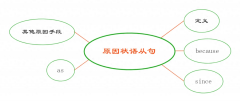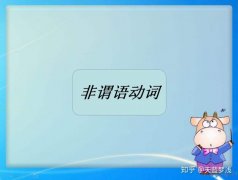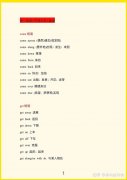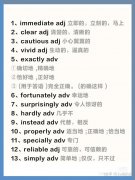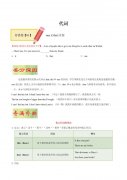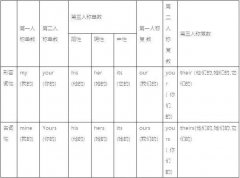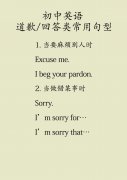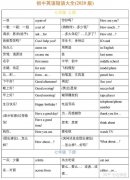2022年初中英语副词知识点辨析
副词:用来说明事情发生的时间、地点、原因、方式等含义或说明其它形容词或副词程 度的词叫做副词。1、副词的分类:(见下表)时 间 副 词频度副词地点/方位副词程度副词方式副词疑问/连接副词其他副词today, tomorrow,yesterday, now,then, early, late,once, soon, just,tonight, long,already, yet,before,ago, later, eversinceafter, wheneverfirst, someday,sometime, last,once,twice,always,usually,often,sometimes,never,(seldom),ever,here, there,home, below,anywhere,above, outside,in, inside, out,back, up,down,away, off, far,near, nearby,wherevereverywhere,very, too,enough,rather,quite,how, so,much, just,nearly, onlyalmost,hardly,as long as等,even, all,a little, a bitwell,hard,alone,fast,together,suddenly,-ly结尾的副词how,where,when,why,whetherhowever, etc.too, also,nor, so,as, on,off,either,yes, no,not, neithermaybe,perhaps,certainly,关系副词where,why, howwhen,2、副词在句子中的位置以及作用: ⑴作状语: ①时间副词:一般放在句首或句尾,注意,early、late、before、later、yet等一般放在句 尾,already、just一般放在动词的前面。如:We will visit the Great Wall tomorrow.(我们明天要 去参观长城)/ They have already been to the UK twice.(他们去过英王国两次)/ Soon the lostboy found his way back home.(不久迷路的孩子找到了回家的路) ②频度副词:一般放在 be 动词之后或者助动词与主要动词之间,但sometimes、often等还 可以放在句首或句尾,usually可放在句首,once可放在句尾,twice、three times等一般放在句 尾。如:Sometimes I get up early.( 我有时起得早 )/ The workers usually have lunch at thefactory.(工人们通常在厂里吃午饭)/ Take this medicine twice a day.(这种药一天吃两次) ③方式副词:一般放在行为动之后,suddenly可以放在句首、句尾或动词之前。如:Old peoplecan hardly walk as quickly as young people.( 老年人几乎不可能走得和年轻人一样快 )/Suddenly he saw a light in the dark cave(山洞).(突然,在黑黢黢的山洞里,他看见了一丝亮光) ④地 点 副 词: 一般放在句尾,但here、there还可放在句首。如:There you can seethousands of bikes running in all directions(方向).(在那里,你可以看到成千上万的自行车朝各 个方向流动)/ The frightened wolf ran away.(受到惊吓的狼逃开了)/ He walked out quietly andturned back soon.(他悄悄地走了出去,很快又返回) ⑤程度副词:修饰动词时,放在动词之前;修饰形容词或副词时,放在形容词或副词之前。但 注意,enough总是放在被修饰的形容词或动词的后面;only位置比较灵活,总是放在被修饰 的词的前面。如:I nearly forgot all about it if he did not tell me again.(如果他不再次告诉我, 我几乎把那事全忘了)/ It was so strange that I could hardly believe my ears.(它那么奇怪一直 我都不能相信我的耳朵)/ She got to the station early enough to catch the first bus.(她早早地赶 到车站赶上了首班车) ⑥疑问副词:用于对句子的状语进行提问,位置总是在句首。如:When and where wereyou born?(你何时何地出生?)/ Why did little Edison sit on some eggs?(小爱迪生为什么要坐 在鸡蛋上?)/ How do you do?(你好!) ⑦连接副词:用来引导主语从句、宾语从句和表语从句,在从句中作状语。How I am goingto kill the cat is still a question.( 我打算怎样杀死那只猫还是个问题)/ That is why everyone isafraid of the tiger.(那就是人人都害怕老虎的原因)/ He wondered how he could do it the nextday.(他不知道第二天怎样做那事) ⑧关系副词:用来引导定语从句,在从句中作状语。如:This is the place where Mr Zhang oncelived.(这就是张先生曾经住过的地方)/ Please tell me the way how you have learned English sowell.(请告诉我你的英语是怎样学得这么好的方法) ⑨其它副词:too“也”,用在句尾;also放在动词前;either“也不”,放在句尾;nor“也不”, 放在句首;so“如此,这样”,放在形容词、副词前;on/off“开/关”放在动词之后;not放 在 be 之后、助动词之后、不定式或动名词之前;maybe/perhaps放在句首;certainly放在 句首或动词之前。如:He went to the Palace Museum and I went there,too.(他去了故宫博物 院,我也去了)/ Maybe your ticket is in your inside pocket.(也许你的票就在你的里边衣袋里)/--Tom doesn’t have a computer. –Nor do I.(汤姆没有计算机,我也没有。) (2)作表语:地点副词一般可以作表语,放在be等连系动词之后,说明人物所处的位置。如:I’mvery sorry he isn’t in at the moment.( 很抱歉 , 他此刻不在家 )/ I have been away from myhometown for nearly 20 years.(我离开家乡有将近 20 年了)/ Jim is over there.(吉姆就在那边)(3)作定语:时间副词(如 now、then)以及许多地点副词都可以作名词的定语,放在名词的后 面。如:People now often have their festival dinners at restaurants.(现在的人们经常在餐馆里 吃节日晚宴)/ Women there were living a terrible life in the 1920s.(在二十世纪 20 年代那儿的 女人过着可怕的日子) (4) 作宾语补足语:地点副词一般可以作宾语补足语。如:Put your dirty socks away, Jim!They are giving out bad smell!(吉姆,把你的脏袜子拿开!它们在散发着臭气。)/ Father kepthim in and doing his lessons.(父亲把他关在家里做作业) [注意] “动词+副词”的宾语如果是代词,则该副词应该放在代词之后。如:He wrote down theword.(他写下了那个词。)→He wrote it down.(他把它写了下来。) 3、有关副词的重要注释:⑴as…as…常构成一些词组:as soon as…(一旦…就…),as well as…(同样),as+形容词/副词 +as possible(尽可能……地)。如:Please ring me up as soon as you get to Beijing.(请你一到北 京就给我写信。)/ Miss Gao hurried to the school gate as quickly as possible.(高小姐尽快地赶 到了校门口。)[注释]“as long / much as+ 名词”可以表示“长达/多达…”的含义。如:The house costsas much as five hundred thousand yuan.( 那幢房子花费高达 50 万元。)/ They stayed in thecave(山洞)as long as two weeks.(他们呆在山洞里长达两周。) ⑵later、after、ago、before的用法:①“一段时间+later/ago”分别表示“(多久)以后/以前”, 主要用于过去时态。②“after/before+某个时刻”分别表示“在某时刻之后/之前”,此时两个词 是介词。③ago与before:ago只能用于过去时,before用于完成时。如:He had an accidenta week ago.(一周前出了一个事故)/ Some years later, the boy became a very famous singer.(数 年后这个男孩成了著名的歌唱家)/ Have you been there before?(你从前到过那儿吗?)/ Aftera few years he gave up smoking.(过了几年他戒了烟。) ⑶above、below、over、under的用法:在上下方用above和below,在高低处用over和under. 如:The stars are high above in the sky.(星星高挂在空中)/ A plane flew over quickly.(一架飞 机从头顶飞过。) 当above、below、over、under是介词性质时,意义相似。 ⑷too、also、either、nor的用法:too(“也”)用于肯定句和疑问句的末尾,且用逗号隔开;also(“也”)用于肯定句句子谓语动词之前;either(“也”)用于否定句末尾,也用逗号隔开;nor“(也不”)用于倒装句句首;如:Are you American,too?(你也是美国人吗?)/ He is not happyand I am not happy, either.(他不愉快,我也不。)/ He didn’t watch the football game. Nor didI.(他没有看足球赛,我也没有。)/ You can also find the market is very good.(你还可以发觉那个 市场很好。) ⑸enough、too、so、very、quite、very much的用法:enough(“足够,十分”)放在形容词或 副词之后;too(“太”)、very(“非常”)、quite(“相当”)、so(“如此地”)等放在形容词 或副词之前,very much(“非常”)放在动词之后。如:It’s too/so/very/quite expensive.(它太贵 /那么贵/非常贵/相当贵。)/ I don’t like sweets very much.(我不很喜欢糖果)[注意]very与much的区别:very修饰形容词、副词的原级和现在分词形容词,much修 饰形容词和副词的比较级;much还可以修饰疑问句和否定句中的动词,very不可以。如:He is very stupid.(他很笨)/ The film was very moving and everyone swept.(电影非常动人,大家 都哭了)/ You must work much harder or you will fail to enter the good school.(你得学习更努力, 不然你考不进那所好学校)/ I don’t like him much.(我不太喜欢他) ⑹sometimes、sometime、some times、some time的用法:sometimes(有时)用于一般现在 时、sometime(在将来某时)用于将来时、some times(数次)表示次数、some time(一些时间) 表示一段时间。如:Sometimes they go hiking in the mountains.(他们有时徒步旅行到山里去)/I will stay here some time.(我会在这儿呆些时候的。)/ I will meet your father sometime.(我什 么时候要见见你的父亲。) ⑺how、what用于感叹句的用法:对句子中的形容词或副词感叹时用how,对人或事物(可 能含有形容词作修饰语)进行感叹用what.如:What a fine day (it is) today!(今天天气真好!)/ How difficult (the problem is)!((问题)真难呀!) ⑻already、yet的用法:在完成时中,already一般用于肯定句,yet一般用于否定句和疑问句。 如:Have you done it already?(你已经做好了?)/ I have not had my breakfast yet.(我还没有吃 早饭呢。) ⑼hard与hardly的用法:hard作为副词意思是:“努力地,猛烈地”,hardly是否定词,意思 是:“几乎不”,一般与情态动词can/could连用。如:They study English very hard.(他们英语 学得很刻苦)/ You can hardly see a person spit in a public place.(在公共场所你几乎看不到一 个人随地吐痰) ⑽like...very much、like...better(=prefer)、like...best的用法:三个短语分别表示“非常喜欢”、 “更喜欢”、“更喜欢”。如:I like baseball very much.(我非常喜欢棒球)/ Do you likebutter better than cheese?(/ They like hamburgers best.⑾“quite/what+a+形容词+ 名词” 的用法:记住:①quite/such/what...+a+形容词+ 名词;②too/so/how+形容词+a+名词;③rather+a+形容词+名词 =a+ rather+形容词+名词。如:I havenever seen such a strange guy(家伙).(我从未见过这样奇怪的家伙)/ It is quite a nice day for awalk.(这真是散步的好日子) ⑿how的几个短语:how often“多常,每隔多久”,用于一般时态,对表示频度的词语进行提问;how soon“多久以后”,用于将来时态;how long“多久”,用于过去时、完成时或其他时态;how many times“多少次”,用于过去时或完成时,对总计次数进行提问;how much“多么,多少”,对程度进行提问,也可以对数量(不可数)或金钱进行提问。如:How long haveyou been like this?(你这样已经多久了?)/ How often does he wash his face?(他每隔多久洗一 次脸?) ⒀much、more与most 的用法:这三个词除了是形容词作名词的修饰语之外,还是程度副 词,much表示“很”,修饰原级形/副,more表示“更”用来构成多音节形/副的比较级,most表 示“更”用来构成多音节形/副的更高级。此外,much 也可以修饰比较级形/副。如:Thispark is much more beautiful than that one.( 这 个 公 园 比 那 个 漂 亮 多 了 )/ It is the mostinstructive film I have ever seen.(这是我看过的更有教育意义的电影) ⒁no more、no longer、not...any more、no...any longer的用法:表示时间,可以用no longer、not...ny more、no...any longer,而且no longer只能放在谓语动词之前;表示程度,可以用nomore、not...any more.如:He no longer lived there.(他不再住在那里)/ Tom wanted no morecakes.(他不想再要蛋糕)/ He didn’ t smoke any more/longer.(他不再抽烟) ⒂ 被动语态中,方式副词一般放在 be 与谓语动词之间。如:The runner was badly hurt.(赛 跑运动员受了重伤)/ English is widely spoken in the world today.(如今世界上英语说得很广泛) ⒃too...to...与so...that...的问题:副词too/so后面跟形容词或副词,to后面跟动词,that后面跟从 句。Too...to...(“太.……以致不……”)是否定的结构,用于简单句;so...that...(“如此…以致…”) 是肯定结构,用于复合句。如:The child is too young to join the army.(这孩子年龄太小还不能参 军)/ He is so strong that he can lift the heavy box.(他这么强壮,搬得动那个重箱子。) ⒄ 既是形容词也是副词的单词有:early, late, long, last, next, first, near, enough, much, all,hard, alone, fast, slow, high, low, straight等等。如:It was a long holiday.(那是个长假)/ Hestayed there very long.(他在那儿呆了好久)/ Think hard then you will find a way.(好好想你就会 找到办法)/ He is a very hard(难对付的)person.(他是个难玩的家伙)⒅farther与further的用法区别:表示地点、方向或距离时两个词同义,意思为“更远、较 远”,但是further还表示“更多、进一步、额外”等意思,此时不能换为farther. 如:Theydecided to go farther/further the next day.(他们决定第二天走得再远些)/ This problem will befurther discussed.(这个问题还要进一步讨论)/ Every one of them had their further studies afterthey left college.(他们每个人大学毕业后继续进修) ⒆rather与quite的用法区别:同very一样,两个词都表示形容词或副词的程度,quite表示 “不到更高程度但是比预料的好”,rather比quite更接近very的含义,含有令人惊讶的意 思。见下图对“nice”程度的描绘:nicenot nice (fairly) nice quite nice rather nice very如:It’s quite a nice film.(这是部好片子)。(可能意味着不是一部更好的电影) /It’s rathera nice film.(这是部很不错的电影。)(意味着比大多数电影都好)[注意]注意 quite 与 rather 后面的次序词序。 ⒇maybe、possibly、perhaps的区别:maybe“可能、也许”,比另外两个词更不正式、更随 便、可能性不大;possibly“可能地、或者、也许”,可能性较大,在否定句和疑问句中表示“无 论如何”;perhaps“可能”,较为常用而且正式,可能性也不大。如:You could put it overthere,maybe.(也许你可以把它放在那边)/ I couldn’t possibly have finished such a long book insuch a short time.(我不可能在这么短的时间内完成这么长的一本书)/ I thought perhaps it wasthe letter you have been expecting.(我以为那也许就是你期盼的信件) (21)most、mostly的区别:most作为形容词和名词时意思是“大多数的、大部分的”,作为副 词时意思为“更,十分、很”;mostly仅为副词,意思为“主要地、多半地、大部分地”。 如:I was at home most of the time when I was free.( 我有空时大部分时间都在家)Mostchildren are naughty.(大部分的孩子都淘气)/ This is the most exciting part of the film.(这是电 影中更令人兴奋的部分)/She is mostly out on Sundays.(星期天她一般不在家) (22)(be) worth、(be) worthy of的区别:worth一般被看作是介词,后面接名词或者动名词,用主动 表示被动含义,还可以用副词well修饰;worthy of表示“值得的、配得上的”,后面跟动名词的 被动形式。如:What is worth doing at all is worth doing well(凡是值得做的,就值得好好去做). /The house is worth¥300,000.( 房子价 值 30 万 元 )/ This book is well worth reading severaltimes.(这本书值得好好读几遍)/ It is a thing worthy of being seen.(这是一个值得看的东西) (23)almost、nearly的区别:两个词意思相近,都表示“几乎、将近”,大多数情况下可以互换, 与否定词连用时用almost不用nearly.almost no相当于hardly any(几乎没有)。如:He haddone almost nothing today.(他今天几乎没有干什么)/ We are almost/nearly there.(我们几乎就 到那里了)/ Almost nobody/Hardly anybody understood his words.(几乎没有人懂他的话) (24)a bit与a little的区别:这两个名词短语经常当作副词使用,修饰形容词或副词的原级或比较级,可以互换,语气比rather弱。如:This digital camera is a bit(a little) expensive.(这台数码相机有点贵)/ It is a little(a bit) colder thanyesterday.(今天比昨天冷了点) 另外,a little可以直接加不可数名词,a bit则采用“a bit + of+名词(不可数或可数名词复 数)”的形式。如:I have got a bit of a cold.(我有点感冒)/ Go and get a little water for me,please.(请你去给我搞点水来)[注意]not a bit(=not at all)意为“根本不”,而not a little则意为“非常,不是一点”。3、形容词、 副词的原级、比较级和更高级1、分类:形容词和副词有原级、比较级和更高级三级。 原级变为比较级和更高级有规则变化和不规则变化两种。2、规则变化:(1)单音节和部分双音节形容词和副词,在原级的后面加上er,est构成比较级和更高级。a)直接加er,est:b)以重读闭音节结尾的,要双写更后一个辅音字母,后加er,est:c)以辅音字母+y结尾的,先把y改为i再加上er,est:(2)两个音节或两个以上的音节的,在原级前加more / most.3、不规则变化:原级 比较级 更高级good好的better更好的best更好的well好;(身体)好的,bad,badly糟糕的,糟糕地worse更糟糕的,更糟糕地; (身体)更不舒服的worst更糟糕的,更糟糕地;ill(身体)不舒服的 (身体)更不舒服的many许多的(可数)more更多的;更most更多的;更much许多的(不可数);非常主语(‘A’) +谓语动词/+ than +第二个人物(‘B’) +….主语(第一个人物) +谓语动词+ as +形容词/副词原级+ as +第二个人物) +谓语动词(否定式) + as / so +形容词/副词原级+ as +第二个人物+….主语(第一个人物little少的less更少的least更少的far远的;远地farther更远的;更远地farthest更远的;更远地further进一步的(地)furthest更深刻的(地)4、形容词和副词的原级、比较级和更高级的用法:(1)讲述某人/物自身的情况时,用原级。基本句型是:主语(sb./sth) +谓语动词+(very/too/so/quite/rather…) +形容词/副词原级+….如:He is very old now.(他现在很老了)/ They ran quite fast.(它们跑得相当快)/The weather looks rather bad.(天气看上去相当糟)/ I am so happy!(我是如此的快乐) ☆表示两者之间没有差别时,使用句型:+….如:He is as excited as his younger sister.(他和他妹妹一样兴奋)/ Lily rode herbike as slowly as an old lady.( 莉莉骑车像老太太一样慢 )/They picked as many apples as thefarmers (did).(他们摘的苹果和农民一样多) ☆表示第一个人比不上第二个人时,使用句型: 如:He is not so / as excited as his younger sister.(他没他妹妹那么兴奋)/ Lily didnot ride her bike so / as slowly as an old lady. (莉莉骑车不像老太太那样慢) /They didn’t pickso / as many apples as the farmers (did). (他们摘的苹果不如农民多) (2) 讲述两者有差异,第一个人物超过第二个人物时,用比较级。基本句型: 主语(‘A’)+谓语动词+(much/a little/even/still)+形容词/副词比较级+than+第二个人物(‘B’)+….如:A modern train is much faster than a car.( 现代的火车比轿车快多了)/ Thisbook didn’t cost me more than that one.(这本书花费我的钱不比那本多) 讲述两者有差异,第一个人物不及第二个人物时,用比较级。句型是:+less+(多音节形 副)比较级如:I think English is less difficult than maths.(我认为英语不比数学难)/ Do youthink it less important to learn a foreign language?(你认为学外语不那么重要吗?) (3)讲述某人/物是一群之中更突出的一个时,用更高级。句型是:主语(sb./sth) +谓语动词+(the) +形容词/副词更高级+in / of ….如:The Changjiang River is the longest in China.(长江是中国更长的河流)/ Hejumped (the) highest of the three (boys).(三个男生中他跳得更高)4、关于比较等级的重要注释:1、以上六个句型中,如果动词是及物或不及物动词,则后面用副词;如果后面是连系动词,则 后面用形容词。如:This car is the fastest of the four.(形容词)(这辆汽车是四辆之中更快的)/This car runs (the) fastest of the four.(副词)(这辆汽车是四辆之中跑得更快的) 2、“比较级+and+比较级”表示“越来越……”。如:The weather is getting warmer andwarmer.(天越来越温暖了) 3、“the+比较级…,the+比较级…”表示“越…就越…”。如:The more trees we plant,thebetter it will be.(我们栽的树越多,情况就会越好)/ The harder you try,the greater your progressis.(你越是努力,进步就越大) 4、一般的形容词或副词的比较级前面可以加much/a little/even/still,而表示数量的 more 之 前还可以加some/ any/ no/ one/ two/ many/ several/ a lot等词。如:It is much colder todaythan yesterday.( 今天 比昨天 冷多了)/ Would you like some more coffee?( 你还 要些咖 啡 吗?)/He did not eat any more.(他没有再吃) 5、more than / less than分别可以理解为“多于/少于”,相当于副词,more than=over; lessthan=under.如:I lived in New York for more than four months.(我在纽约生活了四个多月) 6、“one of the+更高级+名词(复数)”整个短语为单数含义,谓语要用单数形式。如:One of theoldest houses has been burnt in a fire.(更古老的一幢房子在一场大火中被烧毁了) 7、“Which / Who+动词+形/副,□,□or□?”句型中,如果有两个选项,形/副用比较级,如果有三 个选项,形/副用更高级。如:Who has more books, Lin Tao or Han Mei?(林涛和韩梅谁的书更 多?)/ Which is the heaviest,a pig,a horse or an elephant?(猪、马、象哪个更重?) 8、上下文中含有both/either/neither/two/twins等表示两个事物的词时,用比较级,而且往往还 要加the;含有all/none/no one/ every等表示三个或三个以上事物时,用更高级。如:--Do youlike the smaller one?—Neither.(小一点的那个你喜欢吗?一个都不喜欢)/ --Which do you likebest? –All of them!(你更喜欢哪个?全部。)

